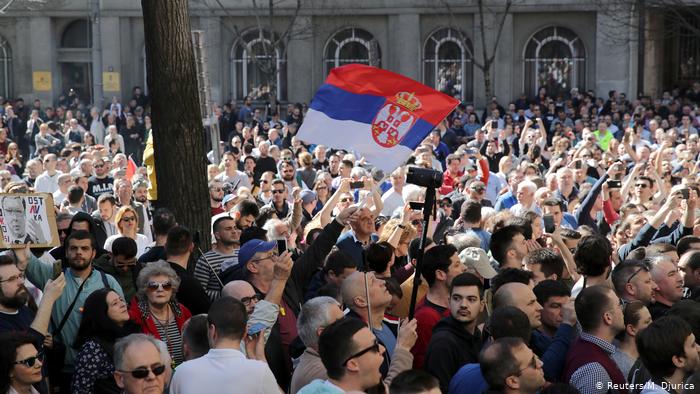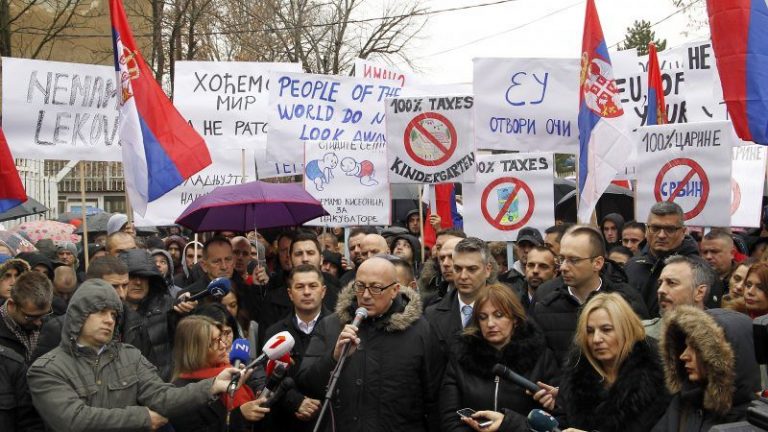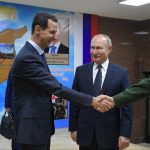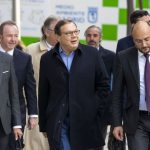Latest events in Serbia have clearly stepped over the line. The protests are escalating against President Vucic with attempts to enter the Parliament building and the Police are using excessive force against protesters as well. For many, in Balkans this is a reminiscence of the violence throughout the 1990s in Kosovo when Special Units of Serbia were cracking down on peaceful protests against Milosevic and his regime.
The pandemic situation has not been handled well in Serbia. Allegedly, numbers of cases have been hidden from the public and people were left to die in corridors of hospitals while claims were made that Serbia is giving away respirators to countries in need. Thousands of protesters flooded streets across Belgrade and other cities immediately after President Vucic stated two very important points. First, he claimed that due to the increased number of cases infected with Covid-19, new measurements will be taken to restrict the freedom of movement. Second important point that was claimed by Vucic is along the lines of Dialogue with Kosovo where Serbs should be prepared to also lose and gain nothing.

The situation with management of the pandemic in Serbia is spiralling out of control. First, there was evidence of tampering the numbers by the government of Vucic and after that, the citizens are complaining about poor management of the whole situation. Videos of dying people in corridors of hospitals emerged in the social media despite lack of coverage in the mainstream media which is controlled by the government. According to most of Human Rights organisations and International Organisations, Vucic controls media in Serbia and Serbia scores lowest in terms of Freedom of the Press in the whole region.
In Vucic’s words, riots are infiltration from foreign secret services, including Russian service without specifying too which enables him to crack down the protests mercilessly as seen on social media videos of citizens reporting on the mass protests. The opposition in Serbia as little as it is, wants Vucic to resign among others also for betraying the Serbia over Kosovo issue in collaboration with EU and US. The right wing opposition in Serbia is also closely linked to Russian right wing extremist parties.
At the same time, pressure from the International community especially from the United States and EU is increasing on the Kosovo dialogue. In June, a meeting organized by the White House in Washington D.C between Kosovo and Serbia failed due to publication of accusations by the Office of the Prosecutor of the Specialized Chambers against Kosovo leaders. At the same time, an invitation for such meeting emerged also from the EU Special Envoy for Western Balkans Miroslav Lajcak. Competition between EU and US regarding Kosovo and Serbia dialogue is visible and obviously increasing pressure on both governments. In Serbia, Vucic tried to prepare the public for the inevitable situation regardless outcome. Any agreement between Kosovo and Serbia at this stage will be interpreted as a victory for Kosovo and Vucic is afraid of losing support in Serbia. With more than half a million former combatants, former military and paramilitary structures of veterans from wars in Croatia, Bosnia and Hercegovina as well as Kosovo, Vucic is right to be afraid.
Vucic’s game is to play a new non-alignment role. In one hand, he plays the EU integration carrot and in the other hand he has the Russian stick. Buying weapons from Russia, Serbia is seen the only ally for Russia in the Balkans. The “Humanitarian Centre”, a military compound funded by Russians in Nis, in Serbia is the largest of its kind in the region. Russian presence in Serbia is a presence of competition with NATO as demonstrated ever since 1999 with Russian Army deployed in Kosovo at the same time as NATO troops without prior agreement. It is strategic partnership above all. And at this stage, it is well known that any outcome of this dialogue does not suit Russia first but also Vucic as well. This was confirmed in the last visit Russian Foreign Minister Sergey Lavrov, who said that he expects increased pressure on the Serbian side from many countries that do not want the development and progress of Serbia and the recognition of Kosovo as an independent state.
The eruption of violent protests in Serbia is in a situation between descendance into chaos and orchestration of chaos. It is chaotic, nevertheless and mainly due to outcome of the dialogue with Kosovo which is caught between Russian influence, US and EU competition.




